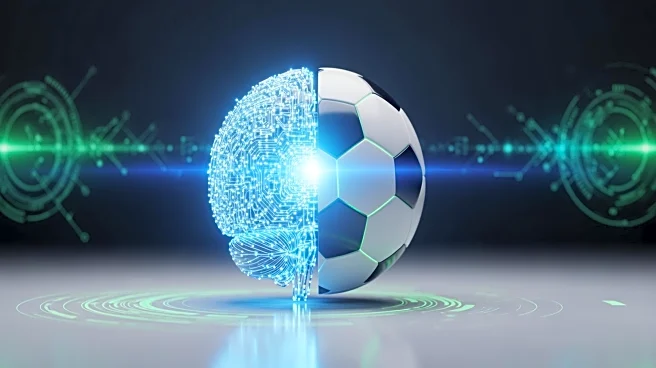What's Happening?
LALIGA, Europe's leading football league, has entered into a Memorandum of Understanding with Globant, a digital transformation company, to integrate Agentic Artificial Intelligence into its operations. This collaboration aims to revolutionize LALIGA's
organizational processes through AI Pods, a subscription model that utilizes teams of AI agents supervised by experts. The initiative will focus on enhancing sports performance analysis, personalized content creation, and workflow automation. Javier Tebas, President of LALIGA, highlighted the strategic importance of innovation in sports, while Martin Umaran, EMEA President of Globant, emphasized the transformative potential of AI in sports management.
Why It's Important?
The partnership between LALIGA and Globant signifies a major shift in how sports organizations can leverage artificial intelligence to improve efficiency and fan engagement. By adopting AI-driven solutions, LALIGA aims to maintain its competitive edge and set a benchmark for other sports leagues globally. This move could lead to enhanced sports experiences for fans and more streamlined operations for clubs, potentially increasing revenue and global reach. The integration of AI in sports management could also pave the way for new business models and technological advancements within the industry.
What's Next?
As LALIGA and Globant begin implementing AI solutions, other sports organizations may follow suit, seeking similar technological advancements to enhance their operations. The success of this initiative could lead to broader adoption of AI in sports, influencing how competitions are organized and experienced. Stakeholders, including clubs and fans, will likely monitor the outcomes closely, assessing the impact on performance and engagement. Future developments may include expanding AI applications to other areas of sports management, such as marketing and fan interaction.
Beyond the Headlines
The integration of AI in sports raises questions about data privacy and ethical considerations, particularly in how personal data is used to enhance fan experiences. As AI becomes more prevalent, sports organizations will need to address these concerns to maintain trust and compliance with regulations. Additionally, the long-term impact of AI on employment within sports organizations could be significant, potentially altering job roles and requiring new skill sets.

















